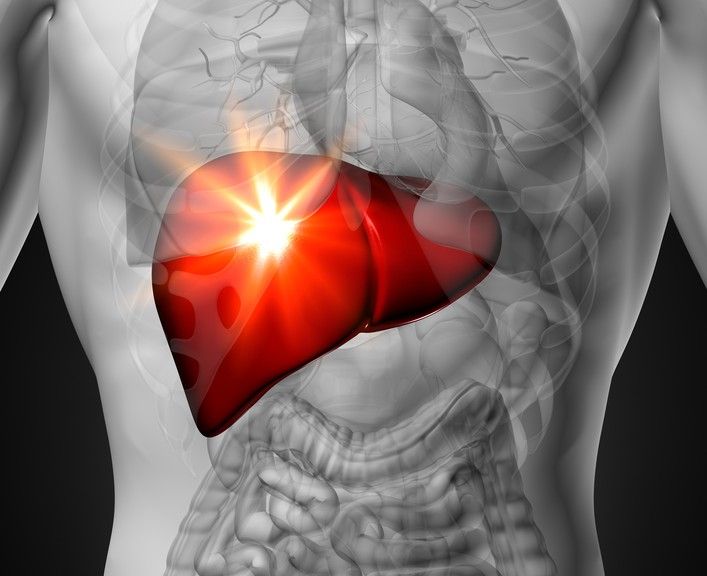
Previous
Study: Probiotics Exert Dual Action to Aid a Fatty Liver

Next
Do Antibacterial Soaps Impact Your Liver?
The Holy Grail of Advanced Liver Disease Treatment
Did you know that a bio-artificial liver is currently in human trials? Similar to how hemodialysis can be a lifesaver for those with kidney failure, the bio-artificial liver can do the same for those facing liver failure.
The second most commonly transplanted organ in the United States, liver donors are in great demand. At any given time there are an estimated 16,500 people awaiting a liver transplant, even though only 3,000 of these organs are available. For those at end-stage liver disease or in acute liver failure, liver transplants currently represent their last hope. Though, the bio-artificial liver support system is currently being tested for its ability to sustain patients with a failing liver until their liver can repair itself or a suitable liver donor match is made.
Designing a device that can perform the liver’s functions temporarily has been in the works for decades. However, the bio-artificial liver designed by Vital Therapies Inc. is leading the way. Cedars-Sinai physicians and scientists are currently testing this invention – a novel, human cell based, bio-artificial liver support system – in
49 sites located in the U.S., Europe and Australia. If the results of these clinical trials demonstrate efficacy and safety, Vital Therapies’ bio-artificial liver has the potential to save thousands of lives.
Functions it Performs
The bio-artificial liver is designed to perform the critical functions of a normal liver, including protein synthesis and the processing and cleaning of the patient’s blood. This occurs much in the same way as hemodialysis for a person with end-stage kidney failure. A process that uses an artificial membrane to mimic the kidney’s function, hemodialysis requires the patient’s blood be pumped from the body into the dialyzer machine where waste products and extra fluid are removed, and then the filtered blood is pumped back into the body.
Devices that do the work of human organs have been used successfully for years. The Dutch physician Dr. Willem Kolff is considered to be the father of hemodialysis after he constructed the first dialyzer (artificial kidney) in 1943. It is astonishing that the liver equivalent to a dialyzer is finally being tested in humans over 70 years later.
According to Andrew S. Klein MD, MBA, director of the Comprehensive Transplant Center and the Esther and Mark Schulman Chair in Surgery and Transplantation Medicine, “Liver failure patients and their doctors have long been frustrated by the critical need to provide the kind of life-saving care kidney patients are afforded by dialysis. This important investigation we are undertaking at Cedars-Sinai is a critical step in addressing the medical emergency presented by liver failure.”
How it Works
The bio-artificial liver is intended to afford the end-stage liver disease patient with time. The additional time gained from this device allows a chance for the patient’s liver to repair itself – or at the very least – to survive long enough to score a liver transplant. The bio-artificial liver works by:
- Pulling blood away from a patient’s body via a central venous line.
- Passing the patient’s blood through four tubes coated with liver cells on the inside.
- When passed through these specialized tubes, the blood is cleaned and treated as if the liver processed it.
- Once processed, the blood is returned to the body.
The human trials currently underway at Cedars-Sinai Medical center will determine if the bio-artificial liver system designed by Vital Therapies, Inc., is ready to make a difference in the outlook for end-stage liver disease and acute liver failure. Although it is decades behind hemodialysis for kidney failure, the bio-artificial liver is finally here – and it could become the Holy Grail of advanced liver disease treatment.
Editors Note: Patients interested in information about clinical trials underway at Cedars-Sinai can call 1-800-CEDARS-1 (1-800-233-2771).
http://cedars-sinai.edu/About-Us/News/News-Releases-2014/Researchers-Testing-Artificial-Liver-as-Potential-Therapy-for-Patients-with-Alcohol-Related-Organ-Failure.aspx, Researchers Testing Artificial Liver as Potential Therapy for Patients with Alcohol-Related Organ Failure, Retrieved October 26, 2014, Cedars-Sinai, 2014.
http://news.softpedia.com/news/Artificial-Liver-Could-Help-Treat-Acute-Organ-Failure-459588.shtml, Artificial Liver Promises to Treat Acute Organ Failure, Laura Sinpetru, Retrieved October 26, 2014, Softpedia, 2014.
http://www.cedars-sinai.edu/Research/Research-Areas/Regenerative-Medicine/RMI-Current-Research/Pancreas--Liver-Program.aspx, Pancreas & Liver Program, Retrieved October 26, 2014, Cedars-Sinai, 2014.
http://www.davita.com/kidney-disease/dialysis/the-basics/the-history-of-dialysis/e/10431, The History of Dialysis, Retrieved October 26, 2014, DaVita Healthcare Partners, Inc, 2014.
http://www.thehealthsite.com/news/hope-for-people-with-liver-failure-artificial-livers-now-become-a-reality/, Hope for people with liver failure - artificial livers now become a reality, Retrieved October 26, 2014, TheHealthSite.com, 2014.
http://www.webmd.com/a-to-z-guides/hemodialysis-20667, Hemodialysis, Retrieved October 26, 2014, WebMD LLC, 2014.







i think this is good but how long can one surve with this this treatment? how much will it cost for this treament?